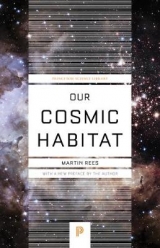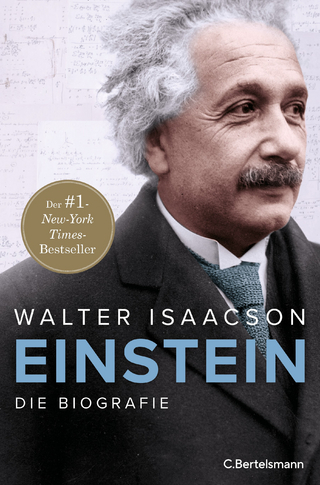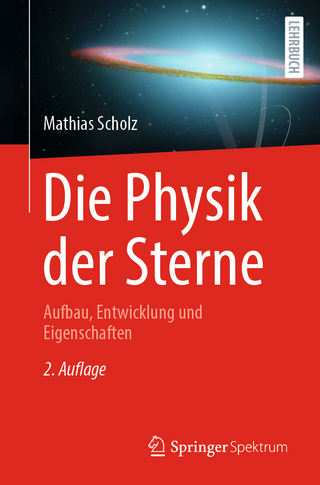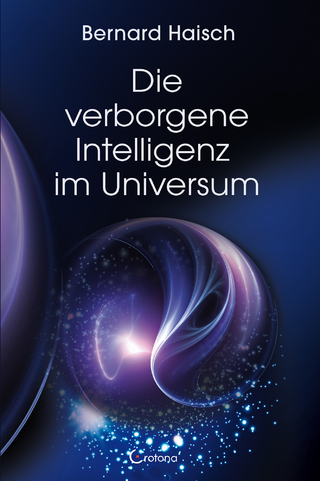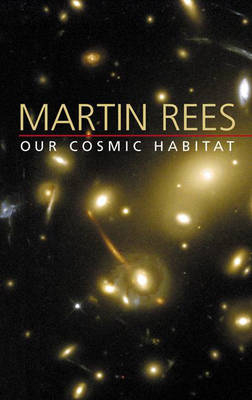
Our Cosmic Habitat
Seiten
2001
Princeton University Press (Verlag)
978-0-691-08926-3 (ISBN)
Princeton University Press (Verlag)
978-0-691-08926-3 (ISBN)
- Titel erscheint in neuer Auflage
- Artikel merken
Zu diesem Artikel existiert eine Nachauflage
Our universe seems strangely biophilic, or hospitable to life. Is this happenstance, providence, or coincidence? Rees explores the notion that our universe is just a part of a vast "multiverse", or ensemble of universes, in which most of the other universes are lifeless.
Our universe seems strangely biophilic, or hospitable to life. Is this happenstance, providence, or coincidence? According to cosmologist Martin Rees, the answer depends on the answer to another question, the one posed by Einstein's famous remark: "What interests me most is whether God could have made the world differently". This book explores the fascinating consequences of the answer being "yes". Rees explores the notion that our universe is just a part of a vast "multiverse", or ensemble of universes, in which most of the other universes are lifeless. What we call the laws of nature would then be no more than local bylaws, imposed in the aftermath of our own Big Bang. In this scenario, our cosmic habitat would be a special, possibly unique universe where the prevailing laws of physics allowed life to emerge. Rees begins by exploring the nature of our solar system and examining a range of related issues such as whether our universe is or isn't infinite. He asks, for example: How likely is life? How credible is the Big Bang theory? Rees then peers into the long-range cosmic future before tracing the causal chain backward to the beginning.
He concludes by trying to untangle the par
Our universe seems strangely biophilic, or hospitable to life. Is this happenstance, providence, or coincidence? According to cosmologist Martin Rees, the answer depends on the answer to another question, the one posed by Einstein's famous remark: "What interests me most is whether God could have made the world differently". This book explores the fascinating consequences of the answer being "yes". Rees explores the notion that our universe is just a part of a vast "multiverse", or ensemble of universes, in which most of the other universes are lifeless. What we call the laws of nature would then be no more than local bylaws, imposed in the aftermath of our own Big Bang. In this scenario, our cosmic habitat would be a special, possibly unique universe where the prevailing laws of physics allowed life to emerge. Rees begins by exploring the nature of our solar system and examining a range of related issues such as whether our universe is or isn't infinite. He asks, for example: How likely is life? How credible is the Big Bang theory? Rees then peers into the long-range cosmic future before tracing the causal chain backward to the beginning.
He concludes by trying to untangle the par
Martin Rees is Royal Society Research Professor at Cambridge University, Astronomer Royal of Great Britain, and author, most recently, of the bestselling Just Six Numbers: The Deep Forces That Shape the Universe.
| Zusatzinfo | 19 line illus. |
|---|---|
| Verlagsort | New Jersey |
| Sprache | englisch |
| Maße | 140 x 216 mm |
| Gewicht | 425 g |
| Themenwelt | Naturwissenschaften ► Physik / Astronomie ► Astronomie / Astrophysik |
| ISBN-10 | 0-691-08926-4 / 0691089264 |
| ISBN-13 | 978-0-691-08926-3 / 9780691089263 |
| Zustand | Neuware |
| Informationen gemäß Produktsicherheitsverordnung (GPSR) | |
| Haben Sie eine Frage zum Produkt? |
Mehr entdecken
aus dem Bereich
aus dem Bereich
Aufbau, Entwicklung und Eigenschaften
Buch | Softcover (2024)
Springer Spektrum (Verlag)
64,99 €
